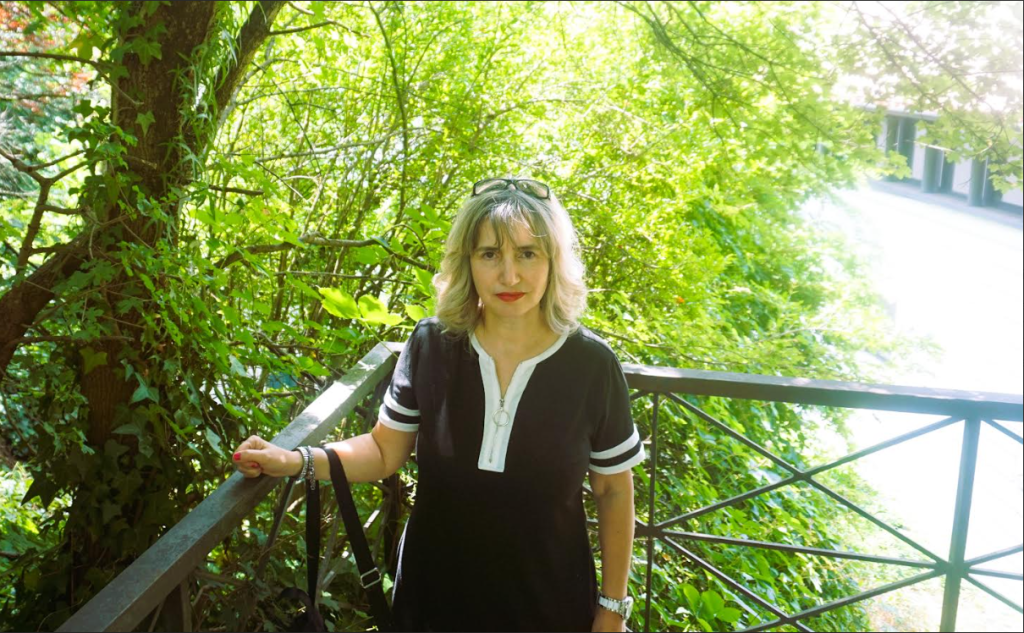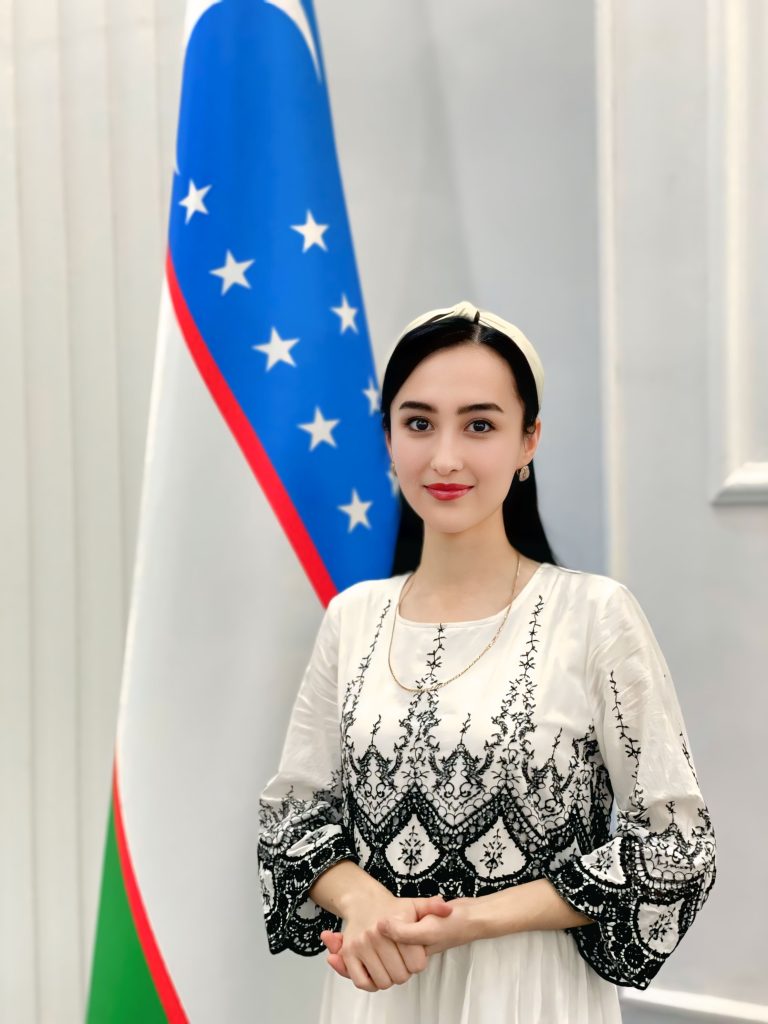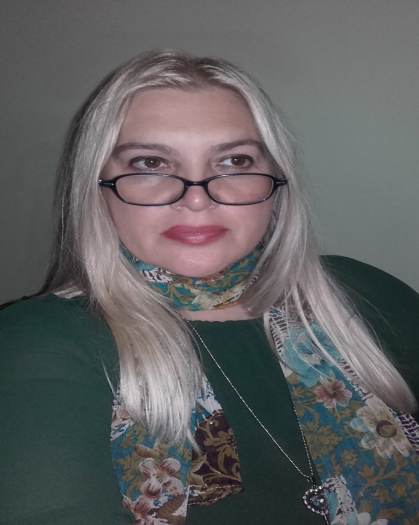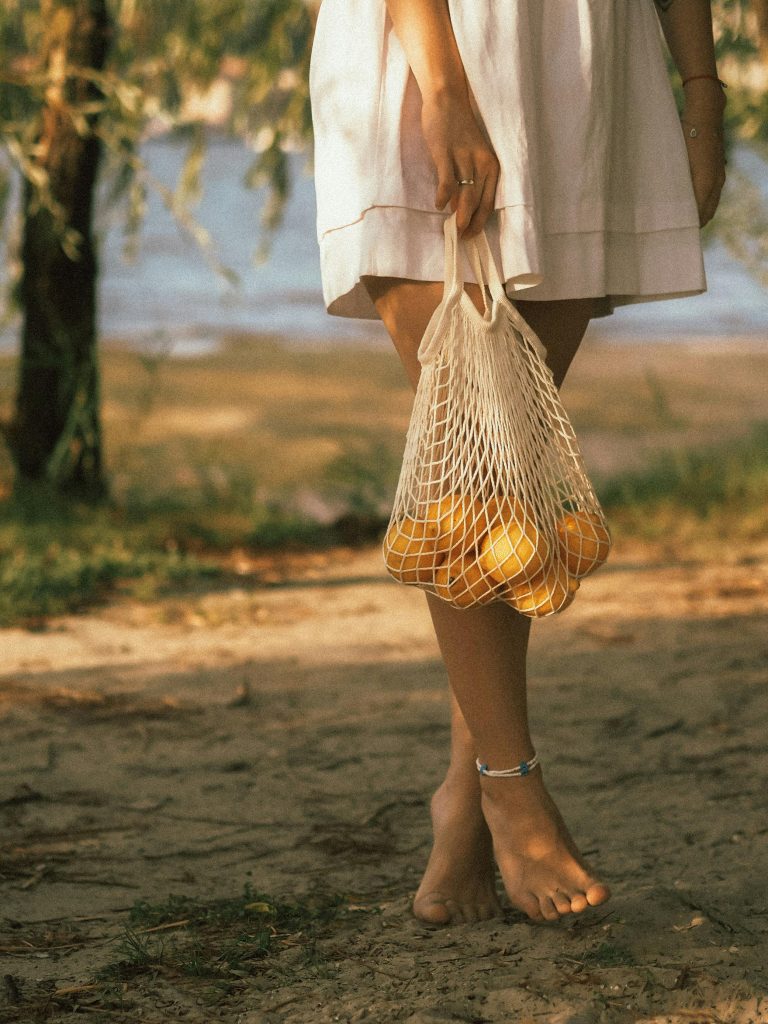
First of all, we’re sharing the new project of young leader Muslima Olimova. The online platform Muslima Academy is a secular youth-led educational initiative empowering students with digital skills, international opportunities, and career readiness. More information here.
Also contributor Christopher Bernard has work included in the new summer issue of literary magazine Caveat Lector. Secondly, contributor Timothee Bordenave will have his painting Carte a Jouer auctioned off at L’Olympia.
Disabled contributor, lyric essayist, and ALS activist Katrina Byrd suffered hurricane damage to her home and seeks support to rebuild and make ends meet while she’s getting ready to move. Whatever folks can contribute will make a real difference.
South African poet and essayist Abigail George, whom we’ve published many times, shares the fundraiser her book’s press has created for her. She’s seeking contributions for office supplies and resources to be able to serve as a speaker and advocate for others who have experienced trauma or deal with mental health issues.
Also, the Educational Bookshop in Jerusalem, a store that has the mission of peaceful dialogue and education, invites readers to donate new or gently used books (all genres) that have been meaningful to them, with a note enclosed for future readers about why the books were meaningful. (The books don’t have to be about peace or social justice or the Mideast, although they can be). Please send books here. US-based Interlink Publishing has also started a GoFundMe for the store.
Writer and playwright Gina De Vries has been awarded a fellowship to receive professional coaching from the Lambda Literary Foundation for her drama exploring and challenging the “Doom Loop” narrative about American cities. She’s raising a small amount of cash to cover the portion of the cost that she’s expected to cover.
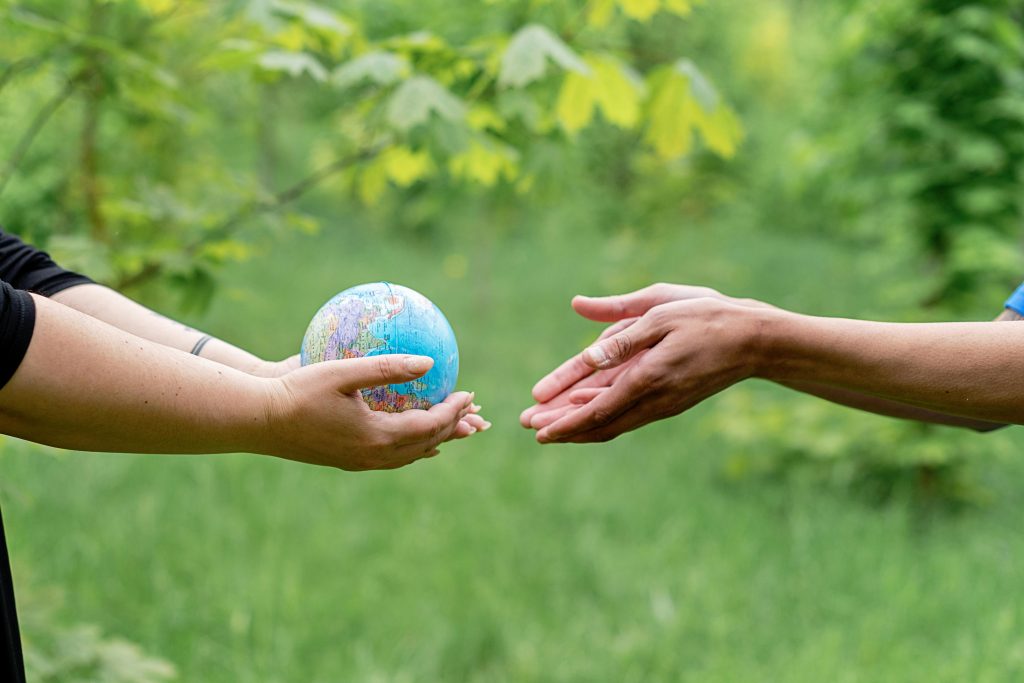
Next, we have a group of young early-career UC Davis academics who hope to attend an important conference in the field of climate science, but need to privately raise cash to replace grant funds that were removed due to changing conditions in the U.S. They’ve been hosting bake sales to make up the difference.
We’re spreading the word about Claire Jones and Amaranthia Sepia and their work through Sista Creatives Rising, creating accessible virtual shows, spotlighting and giving small grants to women of color to pursue their creative dreams. They’ll host a new show this fall, tickets will be available soon, and are inviting people to donate to celebrate Juneteenth! Any donations we receive will help us support our team, speakers and tech needs such as Adobe, Xfinity Emergency Storm Wi-Fi, editing & captioning apps, accessibility support, and more!
Also, we encourage people to consider supporting the Sun Gallery, which is one of the venues hosting the Hayward (California) Lit Hop festival, co-sponsored each year by Synchronized Chaos Magazine. They’re struggling due to the loss of some important grants and facing possible closure, and we would like to give back to the places that have supported us.
Finally, we’re helping out one of the founders of the Secret Spot, a grassroots performance and visual arts collective launched by low-income artists early in their careers. The Secret Spot is temporarily taking a break while she recovers from injuries sustained in a car accident.
Now, for July’s first issue: Hold This World Loosely. These words of St. Paul from two millennia ago remind us that while there is much to embrace in the world, all is impermanent and we can only protect ourselves from suffering by holding on with a loose grasp. However, this flexibility also frees us to appreciate and create positive change.
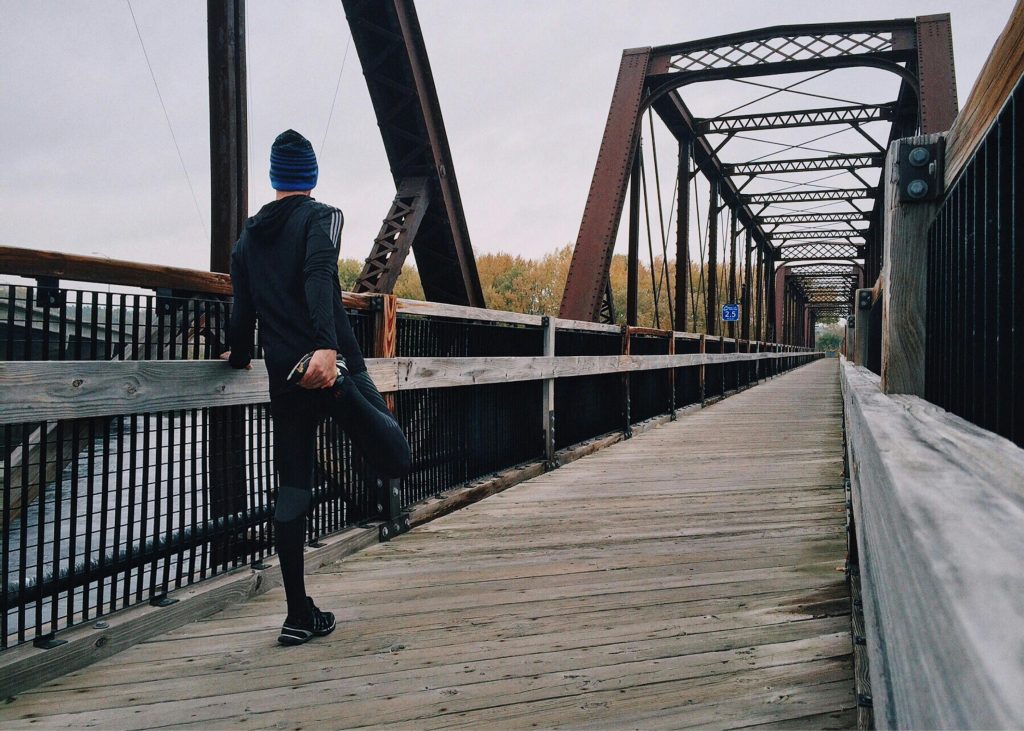
Eva Petropoulou Lianou describes the freedom found in holding onto life with a loose hand. Yucheng Tao crafts poetry of fleeting moments, consciousness, grief, and beauty. Dustin Pickering expresses his desire to float away with his love, even down to shadows and the abyss. Jason Ryberg’s poetry evokes dreams, memory, and timelessness. Lilian Dipasupil Kunimasa writes of gales of wind and emotion and the cultural wisdom embedded in a Native American dream catcher. Graciela Noemi Villaverde writes elegantly of a summer train adventure and the need to let go of some of the past to embrace the future.
Welcoming personal and societal change and growth can be a positive thing. Qobulova Gulzoda honors the forward-thinking Jadid leaders in Uzbekistan’s heritage who promoted education, science, and literacy. Gulshoda Jorabekovna Baxtiyorova offers up patriotic praise for Uzbekistan’s current presidential administration and its efforts to promote education, science, women’s rights, and athletics. Xoliqulova Husniabonu reflects on the bravery and dedication of her nation’s historical heroes. Priyanka Neogi urges people to achieve personal greatness by working hard to develop their talents and growing in their character and respect for others.
As an example of scientific research, Davlatyorova Iqbol outlines the medical causes of and treatments for hyperglycemia. Anorov Sirojiddin outlines approaches to treating urological diseases. Turning to the arts, Federico Wardal points out two films, flautist Andrea Ceccomori’s “Anita” and Joe Mantegna’s “Kamilah the Miracle Filly,” which have crossed national borders to be featured in San Francisco, Los Angeles, and Italy.
Oyatillo Jabboraliev highlights the value of student exchange programs for helping young people learn life skills as well as cultural literacy. Mamatova Diyora explores ways to help students stay motivated to learn foreign languages they don’t frequently hear. Munisa Asimova reflects on the work of a caring teacher who helped her achieve her writing dreams, and Sobirjonova Rayhona also offers up a poetic tribute to a dedicated teacher. Rakhmonova Diyorakhon discusses the importance of experiential and participatory education for young people. Muslima Olimova announces the launch of her online startup which aims to help young people around the world learn the skills that will prepare them for work and also outlines the advantages of different backend programming languages.
Ibodullayeva Dilnura analyzes the effects of combining online and in-person education. Surayyo Nosirova relates her experience with an environmental education project involving young people in solving today’s challenges. Odina Bahodirova highlights the role of environmental education in promoting future sustainability.
Rushana Raupova celebrates the wonder and joy children can bring to the world and her dedication to benefiting them with her life. Aytuvova Khurshida outlines the importance of integrating the latest psychology findings into children’s education.
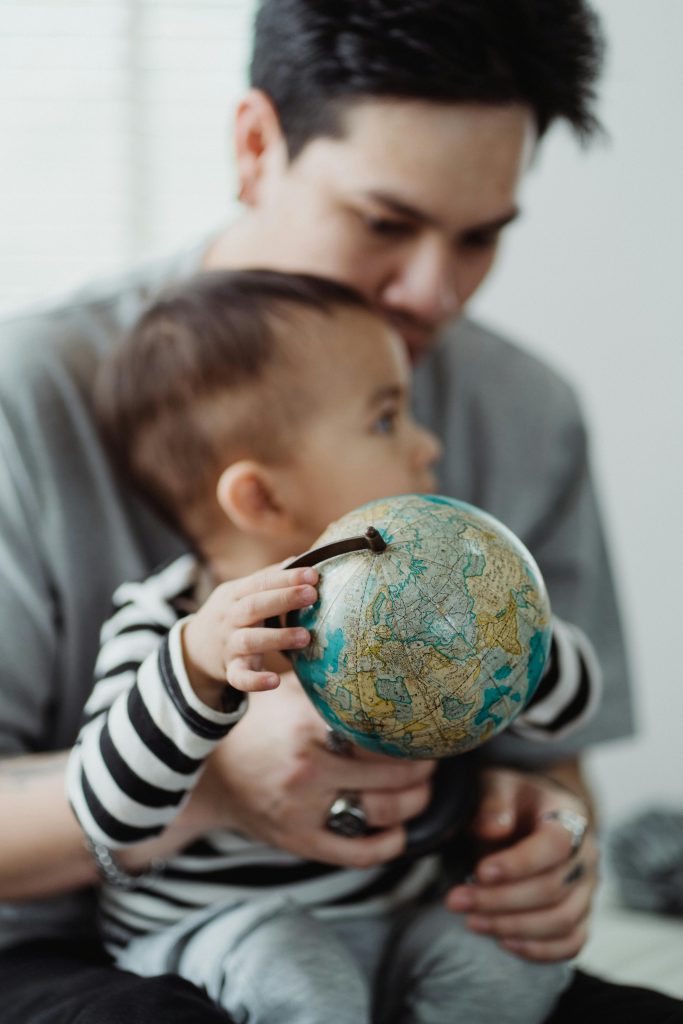
Mario Loprete renders urban style into the gallery with concrete tributes to rap and culture. Sabina G’iyosiddinova builds upon and expands traditional Uzbek art styles in her abstract work.
Dr. Jernail S. Anand suggests a positive role for artificial intelligence in enhancing human life and promoting pro-social behavior. Tursunova Ismigul suggests strategies, including technology-based platforms, to improve access to healthcare in rural communities.
Speaking of traditional rural villages, Manik Chakraborty revels in gentle, sunny village life. Holding onto the world with a light touch does not mean giving up one’s love for one’s world, heritage or past. Maftuna Rustamova honors the creative legacy of Uzbek poet Zulfiya Khanim. Dilnura Khahhorova affirms the importance of celebrating the traditional culture of Uzbekistan while Bektosh Kenjayev honors the self-sacrificing military heroism of historical tribal leader Shiroq. Iskandarova Dilnoza affirms her Uzbek history and culture in poetry. Mickey Corrigan reflects on the complex and intriguing life of James Bond actor Ian Fleming. John Dorsey speaks in his poetry to American culture, memory, and reflection.
David Sapp expresses thoughtful wonderment and fascination for art and the natural world. Irma Kurti speaks to excitement, love, grief, the sky’s various moods, and summer breezes. John Thomas Allen offers a mystical ode to the esoteric arts. Alan Catlin probes the uncanny side of nature in his surreal poems. Joseph Ogbonna describes a road trip where tension among fellow travelers arose, then dissipated as everyone explored the calm and quiet Nigerian countryside. Saiprakash Kuntamukkala listens to an elegant rainfall. Mahbub Alam reflects on patience and how nature blooms on its own timescale. Christina Chin and Jerome Berglund exchange tan-renga lines about mowing the lawn, ants crawling, film noir, and many other topics.
Mary Bone remembers outdoor winter celebrations with friends and family. Brian Barbeito reflects on escaping a garish urban landscape by taking refuge by the sea. Don Bormon speaks to the vast natural renewal each year after the monsoon rains.
Chimezie Ihekuna praises the power of love and expresses a child’s tender love for their father. Elbekova Shohsanam thanks her parents for their constant and sacrificial love. Mashxura Fazliddinova Nuriddinovna offers up a tribute to both her parents. Wansoo Kim speaks to centering oneself and listening to the voices of faith and conscience rather than other less meaningful distractions. Turkia Loucif celebrates family, love, nature and creativity. Rhian Elizabeth’s maybe i’ll call gillian anderson, reviewed by Cristina Deptula, speaks to family and romantic relationships and makes space for love, grief, and change.
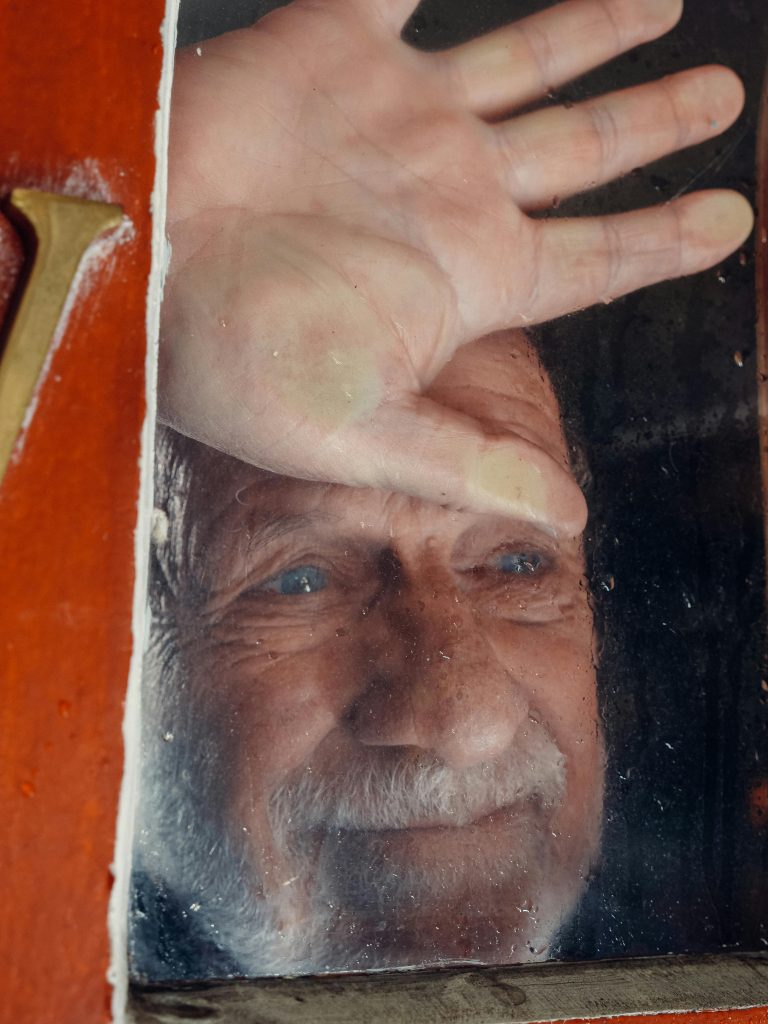
Sometimes remembrance is tinged with sorrow. Poet Hassane Ajbouh carries forth an ecstatic spiritual love through writing of his departed beloved. Mesfakus Salahin’s poetry evokes the pain of separation from a loved one amid the hot monsoon rains. Duane Vorhees writes figuratively, yet sensually, of romantic pairings of opposites and of people left longing or bereft after someone leaves. Greg Hill sends up images of fall, loss, and departure, contrasted with a lively preteen sleepover.
Paul Murgatroyd evokes death, decay, and the persistent memory of youth. J.J. Campbell speaks to aging, disillusionment, loneliness, frustration, and despair. Taylor Dibbert’s narrator reflects on the long shadow of his beloved dog’s memory. Leslie Lisbona mourns a friendship of many years that went awry after her friend’s move and some off-base comments. Mirta Liliana Ramirez remembers a person she lost by the sea they both loved. Stephanie Elendu’s short story presents three different characters grieving the deaths of school children in a Nigerian truck accident from three different perspectives.
Mykyta Ryzhykh speaks to love, physical passion, death, the extreme trauma of wartime, and the psychological violence of having to hide a big part of himself. Palestinian poet Ahmed Miqdad looks to death as a release from the extreme suffering he sees in Gaza and Eva Petropoulou Lianou interviews him about his writing and his hopes for peace and human rights in the region. Abdulrasheed Yakubu Ladan also speaks to the human suffering in Gaza and the people’s determination to survive. Patricia Doyne lampoons Donald Trump and the state of American politics and the possibility of war. Noah Berlatsky grieves the loss of a loved one to social violence at the hands of laws and lawmakers who said they didn’t belong, reminding us of the human cost of policies.
Yuldasheva Oyshakhon reminds us to cherish our parents while we have them. Bill Tope remembers the unspoken rejection he felt after losing his father. Maja Milojkovic recollects the ways her deceased father made an impact on her life. Dan Flore writes of the lingering effects of divorce on now-adult children. Abigail George reflects on her loneliness and depression when her own mother forgot her birthday, and how she found comfort from looking to writers and the human experience.
Sayani Mukherjee speaks to feeling part of nature’s family, one of the plethora of creatures in a continually changing universe. Mohidil Sultanova evokes the joy, wonder, and community of a vibrant Uzbek street market, where she can feel the pulse of humanity interacting. Mahmudova Sevara uses cuisine as a lens to explore points of intersection between Uzbek and Korean culture. Bazarbaeva Inabat analyzes business connections between Thailand’s media and tourism industries.

Several students cover themes of cultural exchange within the field of linguistics. Hafizullayeva Kamolaxon outlines the influence of Turkish on the Uzbek language. Nigora Abdurazzakova explores cognitive development in children bilingual in Russian and Uzbek. Tojimurodova Latofat discusses ways to help speakers of Russian, Uzbek, and English remember words. Aliasqarova Muslima discusses attitudes towards regional and country dialects in the Uzbek language. Baxtiyorova Feruza’s essay deals with the role of common nouns and verbs in Uzbek and English speech. Berdiyorova Nargiza compares idiomatic expressions in English and Uzbek. Jo’rayeva Aziza explores multimodal teaching methodologies for Uzbek as a foreign language. Odilova Diyora looks into how translation strategies impact the interpretation of culturally specific terms in Uzbek. Sa’dullayeva Dilshoda highlights the role of language preservation in claiming and reclaiming culture and identity. Nasirova Xurshedabonu looks into ways to help students gain confidence in speaking foreign languages.
Sometimes we experience life as if it’s been mistranslated, as if we aren’t sure exactly what’s happening and what to make of our circumstances and senses. Mark Young writes of off-kilter scenes from daily life, observed from a distance. Iduoze Abdulhafiz escorts us through a holographic world of surreal prose. Yongbo Ma recollects a hazy dream about attempting to repair a muddy road, then adding to the confusion.
Christopher Bernard reflects on what it means to age when one never quite fit with one’s own generation.
Ben Nardolilli explores possibility and reality, human minds and our role in the universe, and suggests that we belong here. Wansoo Kim urges us to pull out of selfishness and despair and follow our consciences as guides. Nasir Aijaz perseveres in his life despite society’s many ills. Jasmina Ergasheva expresses resilience and hope for her future. Murodillayeva Mohinur reflects on her determination to rise towards her dreams even amidst obstacles.
Michael Robinson speaks to the new life and healing he has found in Jesus Christ. Eva Petropoulou Lianou expresses a wish for people to choose humanity over greed, and in another piece translated by Sumaya Al-Essmael, urges peace on earth for everyone’s best interest. Azamova Feruza highlights the importance of peace and stability for developing, or all, nations.
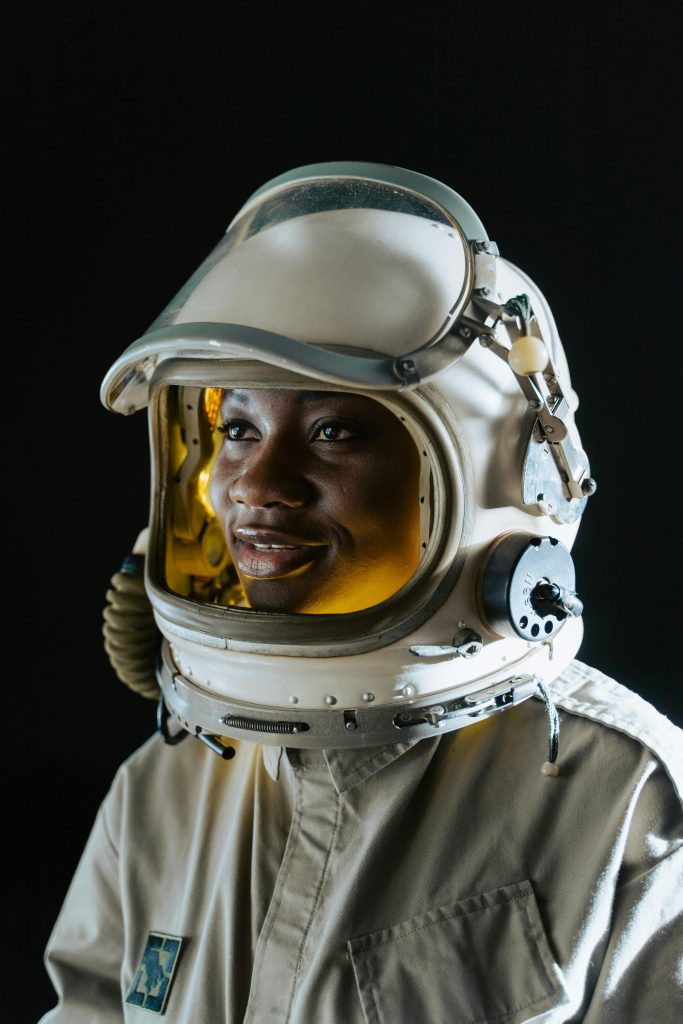
Vo Thi Nhu Mai contributes a gentle, tender love story where a young man finally gets up the courage to embrace his first beloved. Isaac Aju crafts a hopeful, second-chance romance. Sushant Thapa’s piece celebrates friendship and art’s power to encourage the soul.
Peter Cherches contributes a humorous poem making a bold claim to its own existence. Svetlana Rostova highlights the power of words and ventures to rewrite her own story. We hope that this issue inspires and frees you to do the same in your own words and media.

